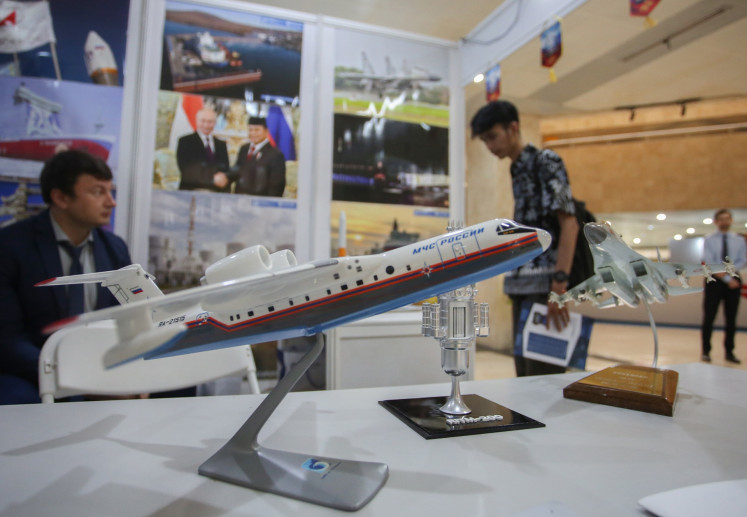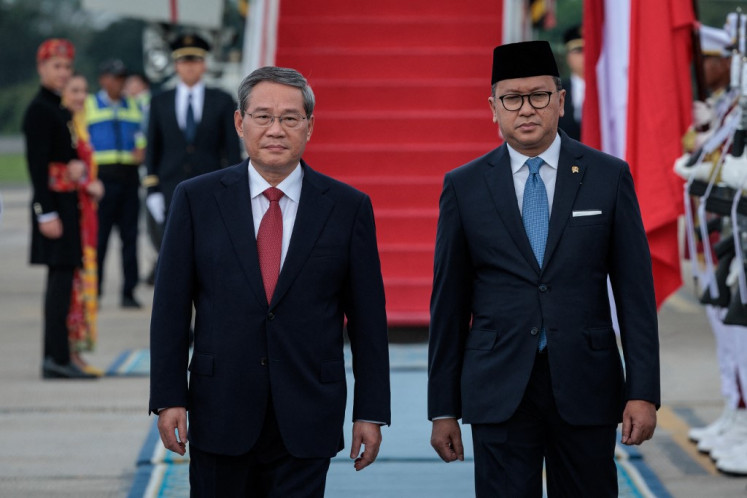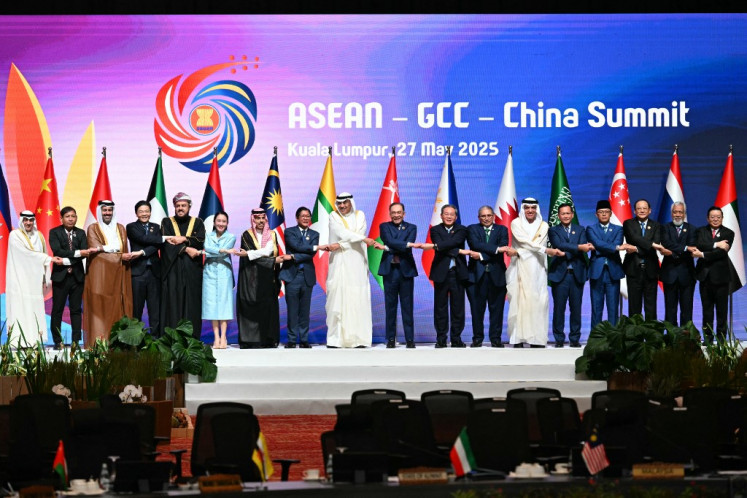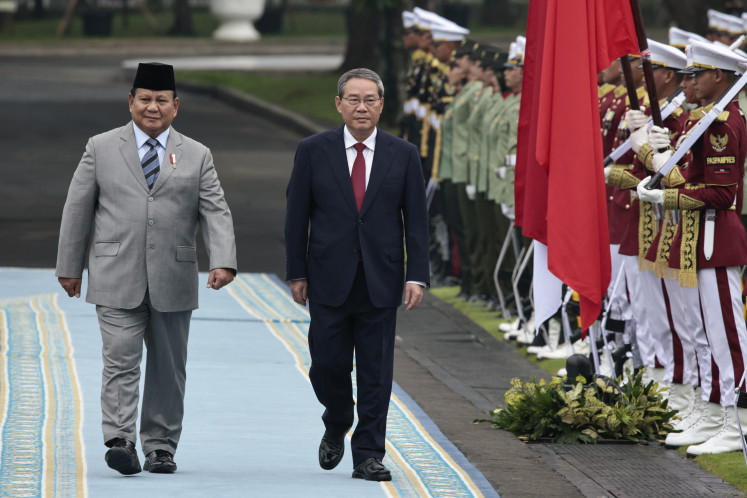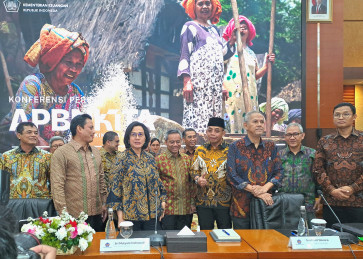Institutional fit matters in public leadership
Leadership, especially in institutions tasked with delivering complex public functions, must be grounded in managerial skill and institutional literacy.
Change text size
Gift Premium Articles
to Anyone
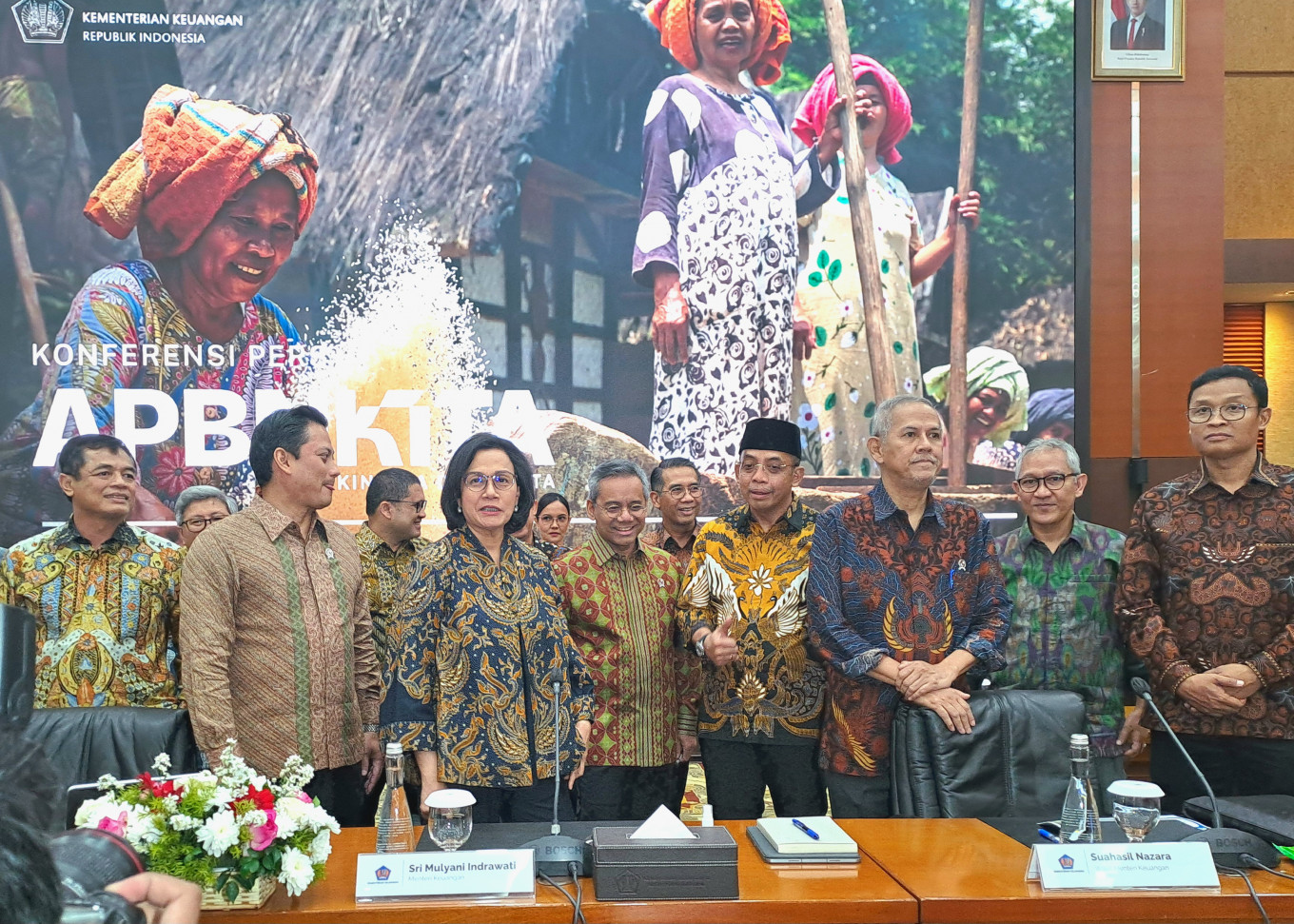 Customs and excise director general Djaka Budhi Utama (left) and tax director general Bimo Wijayanto (right) pose for a photo with other Finance Ministry high-ranking officials in a state budget press conference at the Finance Ministry's Jakarta headquarters on May 23, 2025. (JP/Deni Ghifari)
Customs and excise director general Djaka Budhi Utama (left) and tax director general Bimo Wijayanto (right) pose for a photo with other Finance Ministry high-ranking officials in a state budget press conference at the Finance Ministry's Jakarta headquarters on May 23, 2025. (JP/Deni Ghifari)
I
n a system that aspires to meritocracy, leadership appointments are often more than routine administrative decisions. They are signals. They reflect whether institutions are genuinely committed to professional credibility or drifting toward political convenience that favors proximity and patronage.
The recent appointment of Bimo Wijayanto as tax director general comes at a time when Indonesia’s tax administration is at a delicate juncture. Public trust in the directorate remains shaken following the failed rollout of the Coretax setup, which revealed deep cracks in system readiness and delivery.
At the same time, the government continues to advance the ambitious targets to expand the tax base, digitalize compliance, strengthen enforcement and realign with global standards. In moments like this, leadership becomes more than symbolic. It shapes the trajectory of the reform itself.
For the directorate general, that trajectory is anything but abstract. It is the institutional backbone of Indonesia’s fiscal framework, responsible for administering the social-fiscal contract between citizens and the state.
In 2023 alone, tax revenues contributed nearly 80 percent of the national budget, placing the institution at the very center of fiscal sustainability. Yet that institution is now navigating a period of turbulence. Confidence is fragile. Reform demands are intensifying. In such conditions, continuity and expertise matter. Leadership must not only align with policy. Rather, it must be deeply anchored in the operational and institutional realities it is meant to guide.
This brings the conversation to a crucial point. At its core, this is not a debate about technical competence in the abstract, but about contextual readiness. Leadership, especially in institutions tasked with delivering complex public functions, must be grounded in managerial skill and institutional literacy.
Bimo’s experience in economic planning and bureaucratic coordination reflects a strong background in national policy architecture. That kind of expertise matters. However, leading a tax authority requires something quite different. While economic policy sets the overall direction, tax administration is about building and maintaining the system that turns the vision into reality, step by step.





